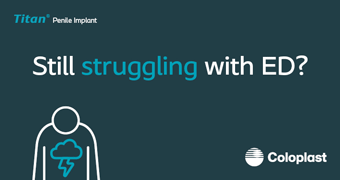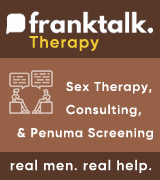Simbarn wrote:Markc2008 wrote:Hey guys, so I am 37 years old— on the brink of 38. Up until a year and a half ago I had never had any sexual problems other than some slight PE from time to time. I had been on an antidepressant for probably five years with no issues. About a year and a half ago I decided I didn’t need the antidepressant anymore and didn’t refill the prescription and just stopped. My dr had never warned me about tapering off and I had no idea it was a big deal.
I am sorry to hear about your sudden deterioration of erectile function.
I will say firstly please listen to the guys who suggested that you do not jump into thoughts of getting an implant. This is the absolute last resort.
If there is a chance that injections will work for you and all other options have failed, this is the best way forward in my opinion too. Your real penis will always feel better than an artificial one, especially when you are a young man.
Since reading your post a few days ago, I have been giving it some thought.
In all your posts you do not give any information as to how your erections work when you are on your own? How difficult it is to get an erection when you are masturbating? How long this lasts for? Nocturnal erections and their frequency in the morning?
For such a sudden loss of erectile function we could rule out things like deterioration of the erectile tissues, fibrosis, or loss of endothelial function. However these things may start to occur if nocturnal erections are lost for too long a period.
As this has not been mentioned so far and you have nothing to lose; I would investigate pelvic floor issues. This can present itself with a varying degree of symptoms. Some get the hard flaccid syndrome others not. Some just get the loss of sensation, ED and penile shrinkage while flaccid as you have.
There will also be a strong psychological component to your ED now after all this time since your issues began. This complicates the issue and adds more symptoms. I could be completely wrong suggesting the above, but given that nothing has helped thus far, I would be looking into anything that might yield an answer.
IMO, forget consulting with urologists for something like this. I would be looking for a good sexual health specialist and a pelvic floor specialist with experience with male sexual issues and hard flaccid syndrome. The moderator on this forum should be able to help with this.
Are you experiencing any other symptoms?
Bowel issues?
Pain?
Have your anxiety levels increased?
Do you have more difficulty relaxing since stopping the AD.
Do you feel the flight and fight mechanism is engaged more so in your body now that you are not taking the AD, and or during sex?
Do you think that since stopping your antidepressants, that your mental condition has deteriorated? Has your depression crept back? Depression can also cause loss of libido and erectile dysfunction issues as well. This is worth considering also.
It was a complete lapse of professional care that your prescribing doctor did not inform you of the need to gradually come of these drugs slowly after 5 years of prescribing this medication. The drug you mention has not been approved in Australia, which always sets of alarm bells for me.
It is also worth mentioning that some form of an autonomic nervous system dysfunction may have developed since abruptly stopping the AD.
In the meantime you could discuss with a sexual health doctor about the benefits of using a low dose of Cialis every day. This will help with preventing deterioration in the penis from a possible lack of nocturnal erections, improve blood flow in the penis 24/7 and help to reduce oxidative stress in the erectile tissues. It will also possibly enable you to be more spontaneous for sex as the drug will be constantly in your system. The benefits of this sometimes take a number of months to start showing effect. This protocol has helped me substantially.
PDE5 inhibitors used chronically in this manner work in a different way than the higher dose on demand use. They perform restorative actions in the tissues that enable the blood vessels to dilate and contract. I say this without going into specific detail.








